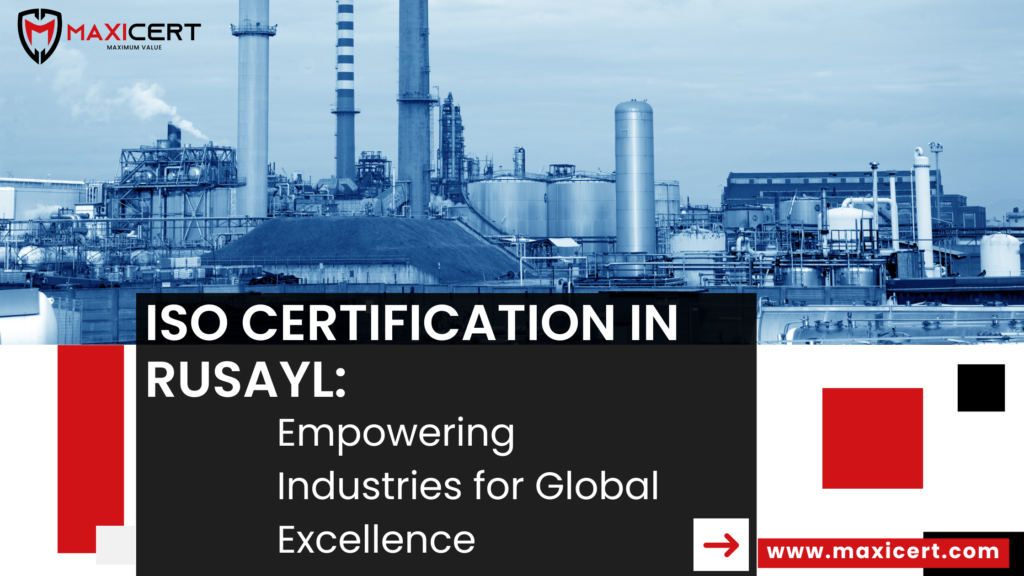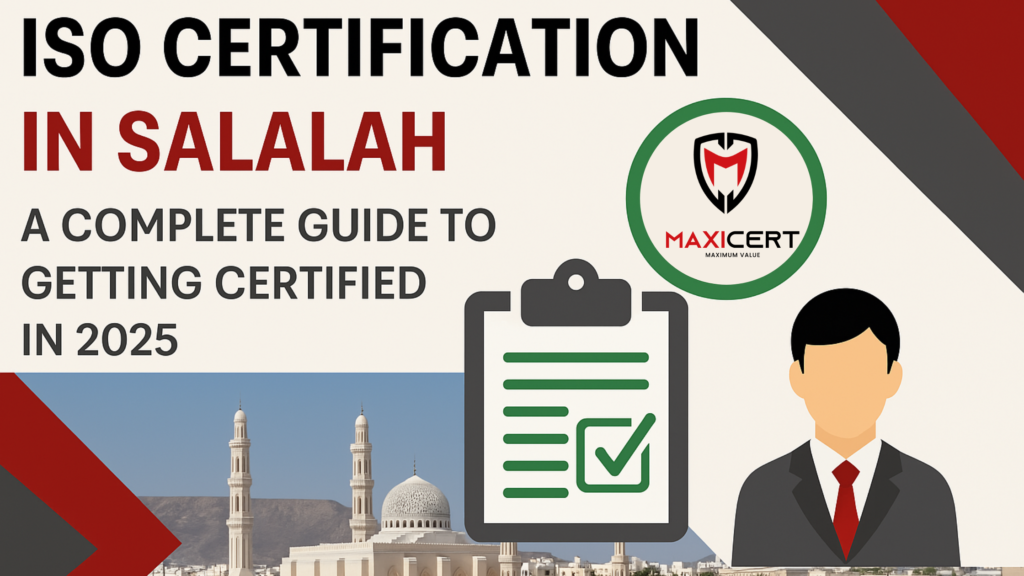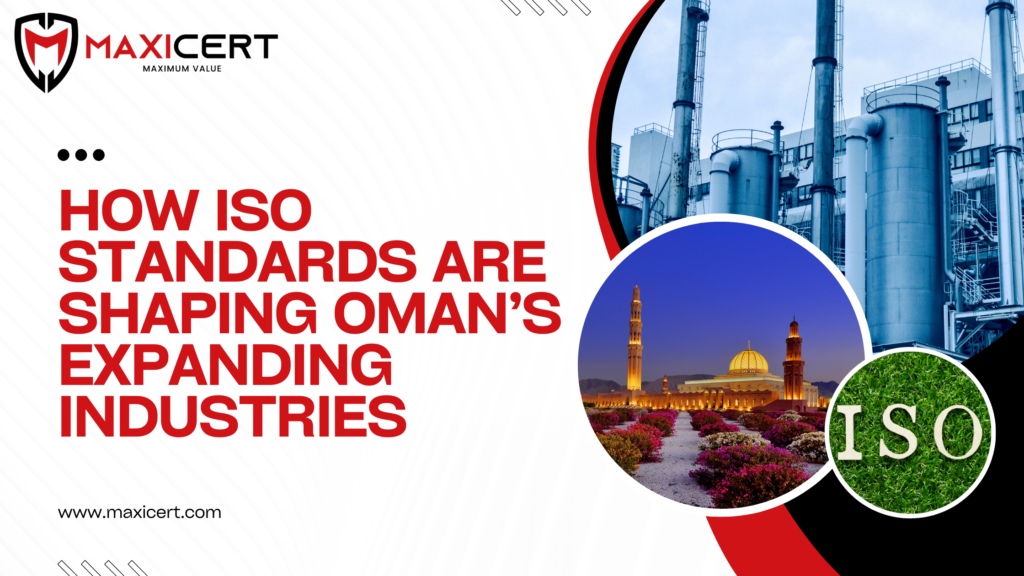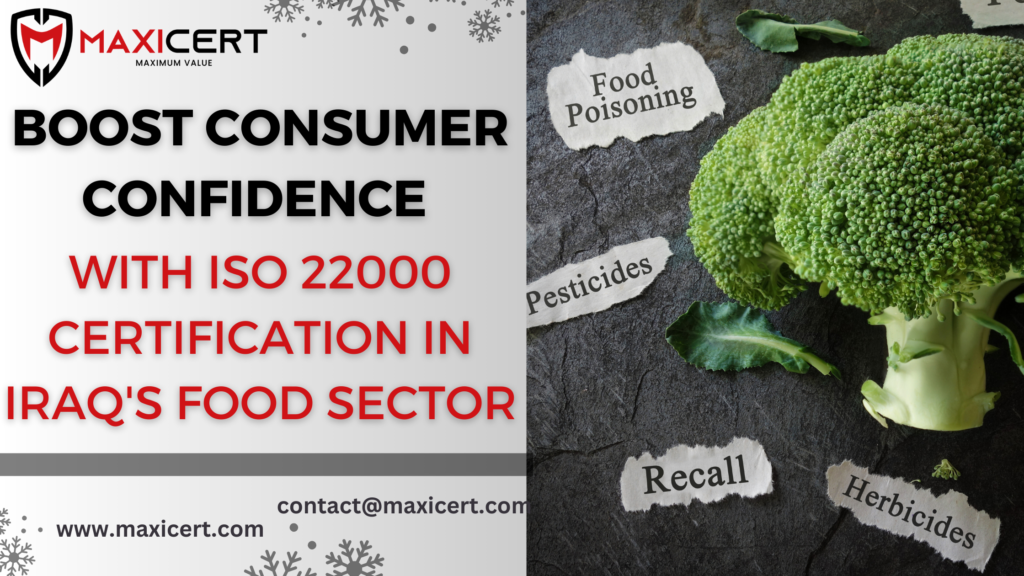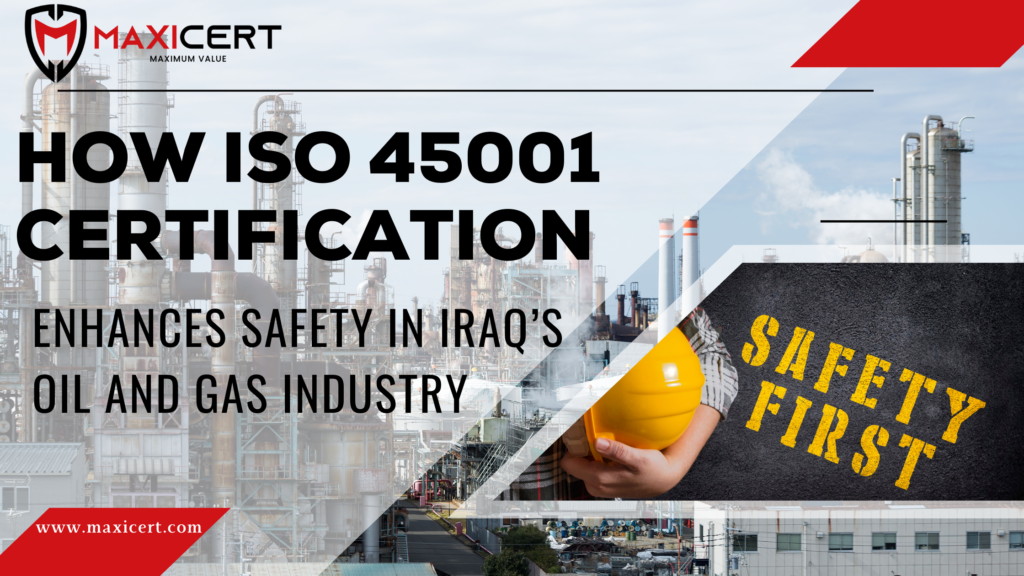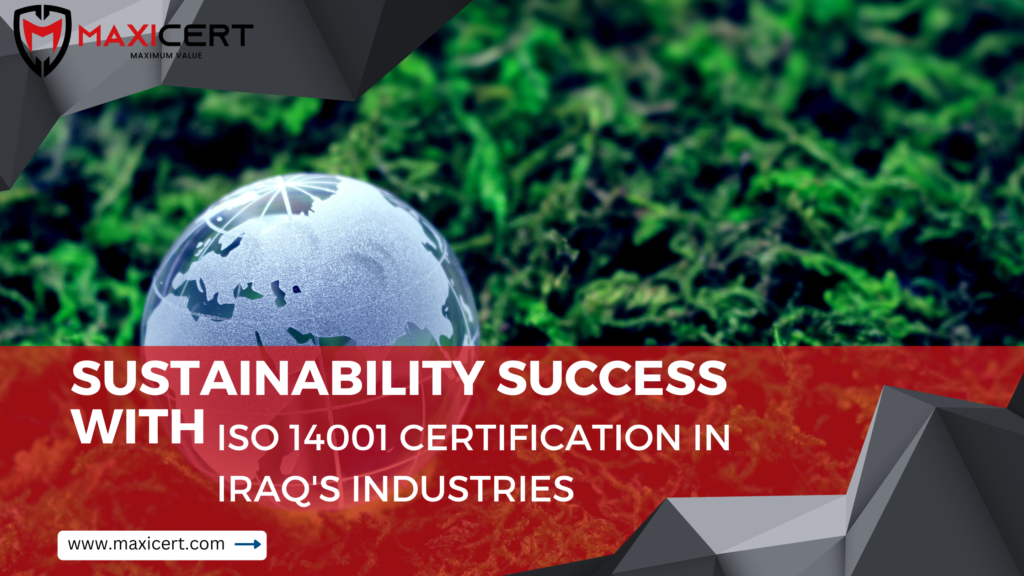ISO Certification in UAE for Oil and Gas Industries: Unlocking Global Opportunities
ISO Certification in UAE for Oil and Gas Industries: Unlocking Global Opportunities Introduction The lifeline of UAE’s economy is the Oil and Gas Industry. As contemporary globalization comes integrated with growing competition, the expectation from businesses is changing with time. To retain leadership in this sector, companies must comply with international standards. This can be done through obtaining ISO Certification In UAE. Certification doesn’t merely bring another badge to business name, it opens to global markets, enhances trust and secures sustainable growth. In this blog, we discuss why Oil and Gas companies need ISO Certification In UAE and how it creates international opportunities, which ISO standards are important, and why working with Maxicert can be the most beneficial advantage. The Journey of an Oil and Gas Company in UAE: A Story of Growth Imagine a company — let’s call it Gulf Energy Solutions — a mid-sized oilfield services provider based in Abu Dhabi. They had brilliant engineers, cutting-edge equipment, and years of experience. Locally, they were trusted. But whenever they tried to bid for large international contracts or wanted to collaborate with multinational companies, one question kept popping up: Initially, Gulf Energy Solutions didn’t realize the full weight behind this question. But soon, they understood that ISO Certification in UAE wasn’t just a formality — it was a trust badge, a global passport to bigger and better opportunities. Request a free Quote How ISO Certification Opens Global Opportunities ISO Certification does not only improve internal processes; it is a gateway into international markets. This is how: Boosts Global Confidence: ISO Standards has a wide range of recognition. Certified companies automatically gain trust from global associates. Attracts More Business: Companies become attractive to other corporations as ISO Certification in UAE shows devotion to quality, safety, and sustainability. Qualifies for Tenders: ISO Certification in UAE is required for many public and private contracts. Enhancement of Resources: ISO standards encourage the reduction of time and expenses while increasing productivity. Celebrity Endorsement Effect: In a competitive industry, becoming ISO certified gives you an edge over competitors, giving you an increased boost to your reputation. To sum it up, oil and gas companies can do business internationally with ease as ISO Certification In UAE provides them with tools to do so. Key ISO Standards for Oil and Gas Industries in UAE Major ISO Standards for Oil and Gas Companies in UAE The nature of your operations determines which ISO System is applicable. Here’s the list of most relevant standards for oil and gas companies: 1. ISO 9001:2015 ↠ Quality Management System (QMS) Objective: Ensures products and services provided are at a constant level of quality. Advantages for Oil and Gas: Execute projects in accordance with deadlines and within specifications. Increase the satisfaction level of clients as well as their loyalty. Make use of streamlined operational processes. 2. ISO 14001: 2015 — Environmental Management System (EMS) Purpose: Centers on minimizing environmental effects. Benefits Relating to Oil and Gas Manage risks of spills, emissions, and waste. Observe lawfulness from the viewpoint of the UAE’s Environment Protection Law. Enhance image of corporate social responsibility. 3. ISO 45001:2018 — Occupational Health and Safety Management System Purpose: Safeguards and promotes the welfare of employees and contractors working in a company by providing safe working conditions. Benefits Related to Oil and Gas Decrease industrial accidents. Develop a safety culture in all operations. Reduce costs associated with insurance. 4. ISO 50001:2018 — Energy Management System Purpose: Encourages exercising control over the consumption of energy in a company. Benefits Relating To Oil And Gas Decrease operational expenditure relating to energy. Increase in the company’s energy performance. Achieve goals relating to sustainability. 5. ISO 29001:2020 — Quality Management for Oil and Gas Supply Chain Purpose: A sector-specific extension of ISO 9001 that focuses on the oil and gas industry. Benefits Relating To Oil And Gas Improve the dependability of critical components. Comply with unique requirements of the oil and gas industry and their level of quality. Improve business with suppliers. Every single one of these standards helps the individual and the organization concerned efficiently manage their oil and gas business in a reliable manner. Extra Benefits That Companies Don’t Often Realize Receiving an ISO certification in UAE comes with additional, special benefits such as: Enhancement of Investor Trust: Systems in operation businesses are more appealing to investors because of the risk management in place. Stronger Internal Culture: There is a positive and increasing focus on quality, safety, and continual improvement at team level. International Expansion Made Easier: Many countries expedite the granting of permits and approvals if companies hold an ISO certificate. Reduction of Legal Risks: Complying with ISO standards allows companies to be compliant with legal requirements and thus avoids penalties. Increased Customer Retention: Customers enjoy working with dependable, certified firms trust certified companies and dill with them time and again. Real-World Story: How ISO Certification Changed the Game Consider the case of a mid-sized oil servicing company based in Abu Dhabi. They had local clients but struggled to win international projects. This was the case until they achieved ISO 9001 and ISO 45001 certifications. They became able to bid for projects with multinational companies. Their incident rate dropped by 40% within a year. Customer satisfaction scores improved by 35%. Now, they operate not only in the UAE, but also in Asia and Europe. That is the essence of ISO Certification In UAE, it transforms potential into global success. Challenges You Might Face (And How to Overcome Them) Of course, the road isn’t always smooth. Here’s what companies face: Challenge How to Overcome Resistance to Change Educate and involve your team early. Documentation Overload Hire expert consultants like Maxicert to simplify the process. Cost Concerns Think of ISO as an investment, not an expense. Fear of Audits Proper training and preparation make audits smooth. Remember: The right support can make the journey easy and rewarding. Steps to Achieve ISO Certification for Oil and Gas Companies in UAE Know What You Want:
ISO Certification in UAE for Oil and Gas Industries: Unlocking Global Opportunities Read More »




